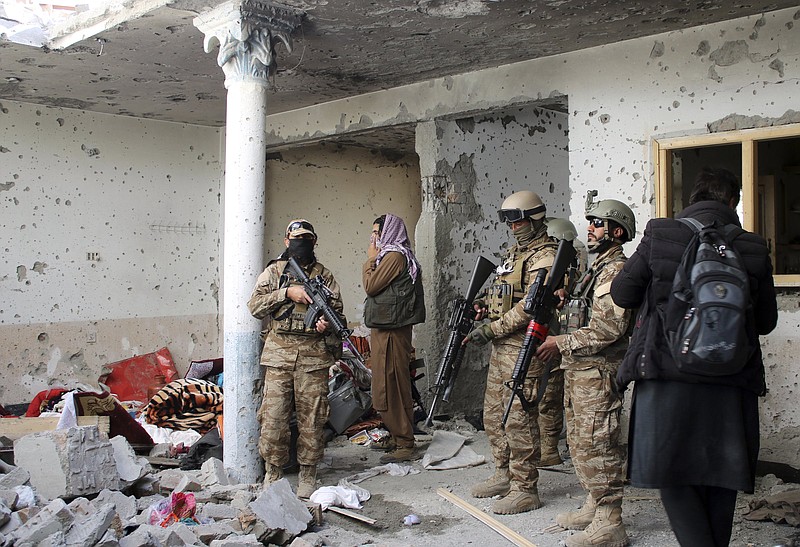KABUL -- Taliban fighters have summarily killed or forcibly "disappeared" more than 100 former police and intelligence officers since taking power in Afghanistan, Human Rights Watch said in a report Tuesday. The group pointed to continuing retaliation against the armed forces of the ousted government despite an announced amnesty.
Taliban forces have hunted down former officers using government employment records and have targeted those who surrendered and received letters guaranteeing their safety, the report said. In some cases, local Taliban commanders have drawn up lists of people to be targeted, saying they committed "unforgivable" acts.
"The pattern of killings has sown terror throughout Afghanistan, as no one associated with the former government can feel secure they have escaped the threat of reprisal," Human Rights Watch said in the report.
Since seizing power in August, the Taliban have been struggling to deal with the collapse of the country's economy and have faced an increasingly deadly insurgency by the Islamic State group.
Taliban forces have also targeted people they suspect of supporting the Islamic State in eastern Nangarhar province, an epicenter of Islamic State attacks, the report said. In the province's capital, Jalalabad, a fierce, 8-hour gun battle erupted Tuesday when Taliban forces raided a suspected hideout of Islamic State militants, witnesses said.
The Taliban leadership has repeatedly announced that workers of the former government, including members of the armed forces, have nothing to fear from them. Former army officers have said they were ordered to give up their weapons, and in return they received a document confirming their surrender and ensuring their safety.
On Saturday, Taliban Prime Minister Mohammed Hassan Akhund denied in a public address that any retaliation was taking place.
When the Taliban took over, "they announced amnesty for all. Has there been any example of this?" he said, referring to retaliation. "There is no problem for anyone." But he added that if any former security officer "resumes his bad deed ... then he will be punished based on his crime."
But Human Rights Watch said the promised amnesty has not stopped local commanders from retaliating against former members of the army, police and intelligence services.
"The burden is on the Taliban to prevent further killings, hold those responsible to account and compensate the victims' families," said Patricia Gossman, the organization's associate Asia director.
Through interviews with witnesses, relatives, former government officials, Taliban officials and others, Human Rights Watch said it had documented the killings or enforced "disappearance" of 47 former armed forces members in four provinces between Aug. 15 and Oct. 31. It said its research indicated at least another 53 killings or disappearances took place as well.
The research focused on Ghazni, Kandahar, Kunduz and Helmand provinces. "But the cases reflect a broader pattern of abuses" reported in other provinces, it said.
Taliban fighters have carried out night raids on homes to detain former security officers or threaten and abuse their relatives into revealing their whereabouts, it said. In multiple cases it documented, the bodies of those who had been taken into detention were found dumped in the street.
While some "opportunistic" killings took place immediately after the Taliban takeover, "killings and disappearances appear to have become more deliberate since then as Taliban commanders ... have used informants and information from the previous government to locate others" linked to the former armed forces, it said.
In one case cited by the report, a former fighter in the National Directorate for Security named Abdul Qadir went into hiding in Kunduz province after the government fell, then resurfaced to live with his in-laws. On Aug. 25, he was stopped at a checkpoint by Taliban fighters. He admitted he had been a security force member but pointed out the amnesty. The fighters detained him anyway, and three days later his body was found by a river.
In Ghazni province, a former local police commander named Saadat disappeared after going to the market in mid-October. Residents later brought his body to his home, telling relatives he had been killed on the road by armed men they believed were Taliban.

